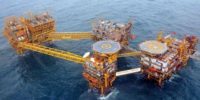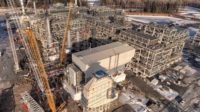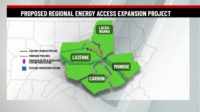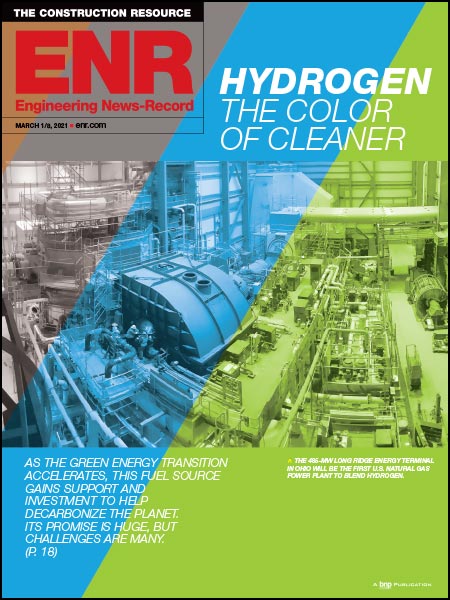

Completion in 2013 of the 1,250-MW Al Khairat powerplant, the largest to be built in Iraq, not only will boost electricity output in the war-ravaged nation by 20%, but marks a key social milestone for 5 million citizens who had only intermittent power access.
Iraq needs at least 14,000 MW to meet the high demand for energy but currently produces less than half, said one online news report.
With the new plant in operation, seven cities in the Karbala region were set to gain reliable power for at least 20 hours a day. Power shortages cost Iraq's economy as much as $40 billion year, according to a recent power-ministry study.
The project, which began in 2011, included installation of 10 gas-turbine generators and continuous emissions monitoring-equipment, along with related infrastructure, such as power substations, a small refinery, and water and wastewater treatment facilities.
The plant is designed to operate using three different types of fuel, based on availability, according to project participants. "This gives flexibility and sustainability in the supply of electricity," says Osman Saim Dinç, general manager of Çalık Enerji.
Participants faced logistical challenges in sourcing materials and managing a workforce that reached 2,300 at peak. Many engineers fled the country during decades of sanctions and war, according to an article in The Economist.
With company participants from countries that included Turkey, Iraq, Turkmenistan, Syria, India, Korea, Germany, France, Peru, Ireland, Italy and the U.S., the project team says obtaining visas in time was a challenge, as was communication and differing cultural patterns within the workforce.
Karbala, located about 100 kilometers southwest of Baghdad, is one of the holiest for Shia Muslims, with numerous holidays and influxes of pilgrims complicating worksite logistics and schedules.
Unexpected heavy rains and sandstorms during the spring season also took a toll on site activity, according to Çalık Enerji. "One of the biggest challenges was to provide a secure environment to overcome the threats that might have come from outside or inside the project," says Çalık Enerji's Dinç.
The project team maintained strong relations with local sheikhs and other community leaders, he adds. There were no security incidents, according the project team.
Adherence to strict safety rules generated a recordable injury rate of just 0.34 and a lost-time injury frequency rate of 0.28, says the team submission. Medical care and fire emergency support were available 24 hours a day.
The project, along with work on the smaller Nainawa powerplant in Iraq, was Alstom's largest contract in the country, CEO Patrick Krons said in 2011.
GE's gas turbines at Al Khairat are among 56 the electricity ministry purchased from the firm in 2008, a ministry official told Reuters.
According to its website, Çalık Enerji also completed, last fall, a 750-MW powerplant in Mosul, Iraq, and announced, earlier this year, the start of construction on the 230-MW Gardabani combined-cycle powerplant in the former Soviet Republic of Georgia, which it says is one of the largest energy investments there in recent years.
The firm also announced plans to build a 542-MW facility in Khoms, Libya, about 120 km from the capital of Tripoli. Its contract there also includes 12 years of plant operation and maintenance.
PROJECT TEAM
Owner: Iraq Ministry of Electricity, Baghdad
General Contractor: Çalık Enerji, Istanbul
Lead Engineer: Idom Ingeneria Y Consultoria, S.A.U., Madrid
Civil Works: ATK Insaat, Istanbul
Power and water subcontractor: Units of General Electric Co., Fairfield, Conn.
Transmission Equipment Supplier: Alstom Grid, Paris






Post a comment to this article
Report Abusive Comment